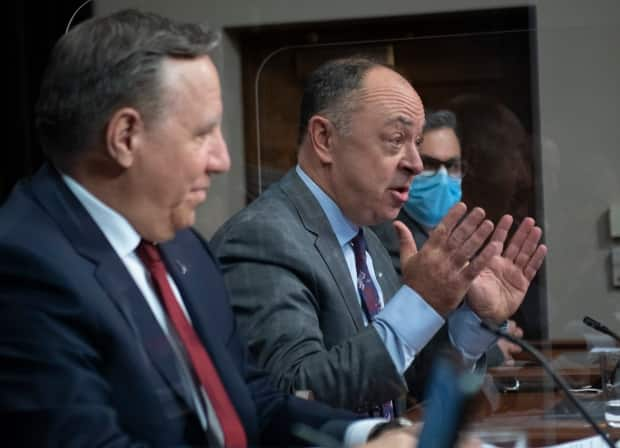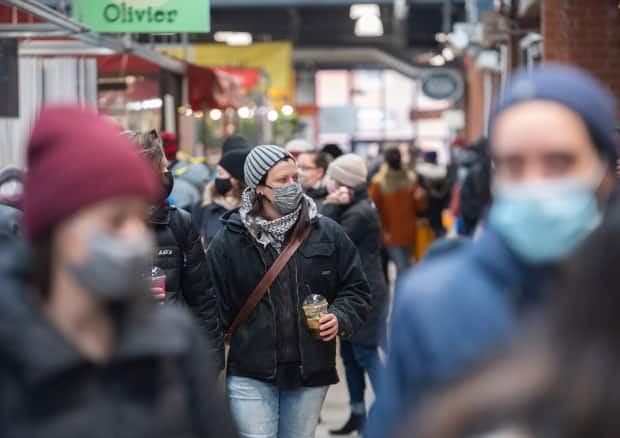Quebec pushes back curfew in red zones, promises all adults a vaccine by June 24

The curfew in Quebec's red zones will be pushed back from 8 p.m. to 9:30 p.m. local time starting Wednesday and three rural regions will be upgraded from orange to yellow zones, allowing people there more freedom.
Premier François Legault announced the change at a news conference Tuesday, saying the situation is improving in Quebec despite the threat of variants and a possible third wave.
He said people have been requesting the curfew be pushed back as days are getting longer. However, the premier warned, people cannot hold private gatherings with friends and family.
"We can take an evening walk but indoor gatherings are still forbidden," Legault said.
Legault announced the loosening of several measures, including allowing theatres and show venues in red zones to reopen on March 26. Audiences of up to 250 people will be allowed but they will need to wear procedural masks and remain distanced.
Places of worship in red zones will be allowed to host up to 25 people; the current limit is 10. As in theatres, people will need to wear masks and keep their distance.

The premier explained why religious services are required to be small, saying congregations tend to be tight-knit communities and it would be more difficult to enforce distancing rules than in theatres, where most people are strangers.
All these changes come as the epidemiological situation continues to improve across the province.
Legault said public health officials were worried cases would spike after March break, but while there has been an increase, it was "nothing dramatic."
The premier said the vaccination campaign is getting into full swing and he expects everyone over the age of 65 to be vaccinated by mid-April.
Everybody who wants a vaccine will be able to get it by June 24, he said, but that does not mean that public health restrictions can be immediately lifted.
"It's good news, but we don't know how good," Legault told reporters, before warning about the risk of coronavirus variants.
Caution still needed
Legault said it's still too soon to know what the coming summer will look like, despite the plan to vaccinate everybody who wants it by the Fête nationale du Québec.
Health Minister Christian Dubé said more than 34,000 people were vaccinated on Friday and some 1,500 pharmacies across Quebec will soon be offering the vaccine as well.
As long as people continue to follow the guidelines, get tested and co-operate with contact tracing efforts, the health minister said the situation should not spiral out of control.
Regions that will be upgraded from orange to yellow zones include Gaspésie—Îles-de-la-Madeleine, Côte-Nord and Nord-du-Québec.
The curfew is lifted in yellow zones. Occupants of two private residences are allowed to gather in yellow zones. Bars and casinos can open, and venues such as cinemas and performance halls can host up to 250 people.
Legault said high school students in orange zones will be able to return to in-person schooling full time rather than alternating days. That change will begin on Monday, allowing Secondary 3, 4, and 5 students to go to school every weekday.
Montreal region still red
However, off-island suburbs of Montreal will not be upgraded to orange.
The Montreal region remains the only area that is red, but many had hoped the province would scale back restrictions in off-island suburbs where the number of new cases is not as high.
Legault acknowledged that people in the Montérégie, Laurentians and Lanaudière regions were hoping to be bumped up to orange zones, but that is not going to happen for now.
Dr. Horacio Arruda, Quebec's director of public health, said the loosening of restrictions must be done step by step.
The variants remain a concern, said Arruda, who cited the issues faced in the neighbouring province of Ontario where some experts say the third wave is underway.
In Quebec, he said the number of new cases appears to be hitting a plateau, but the highest concentration of those new cases are in Montreal where the population is the the most dense.

